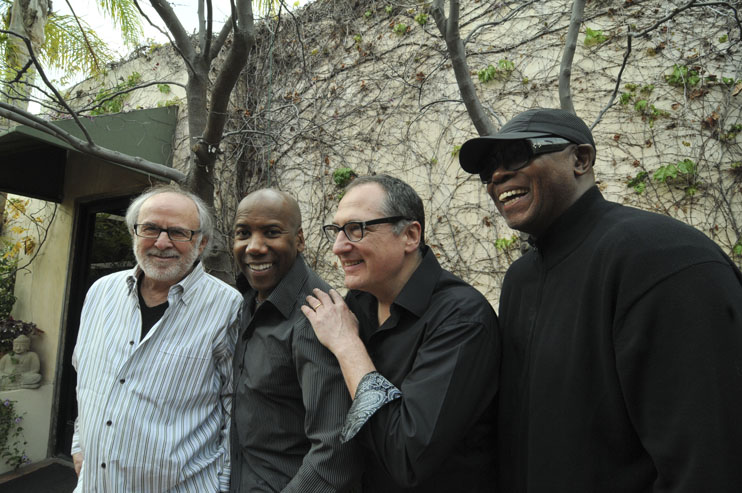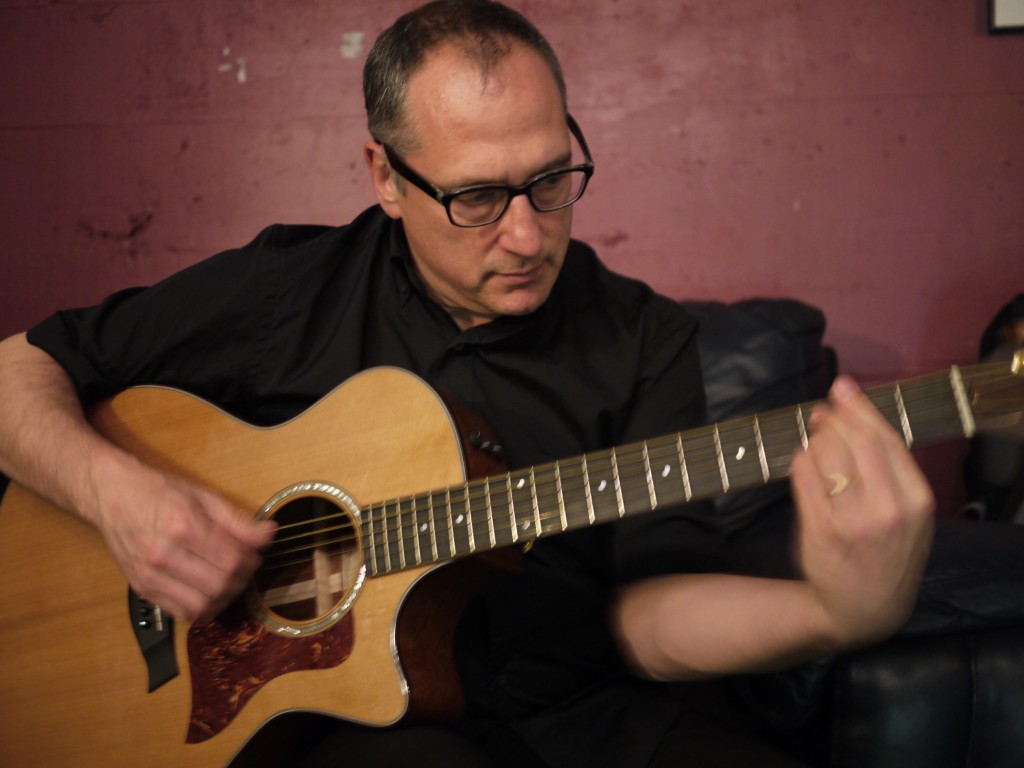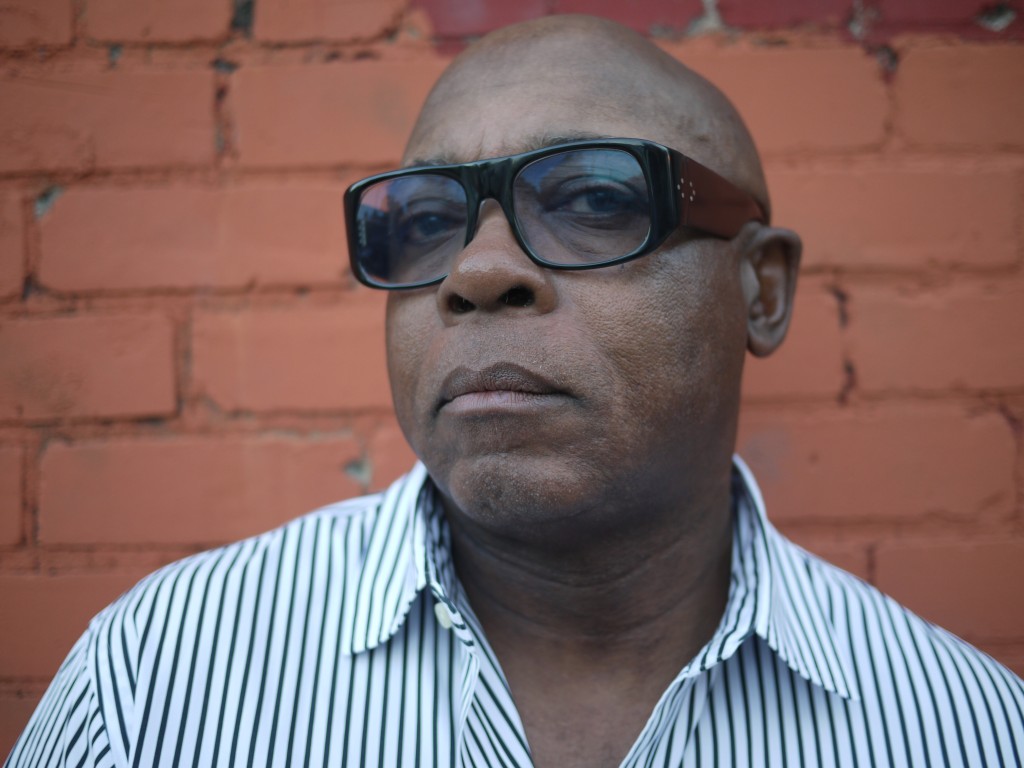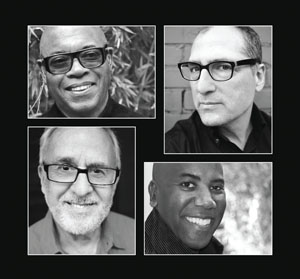Chuck Loeb & Harvey Mason Chat with Jazz Monthly
by Veritas on Oct.13, 2012, under Press &Reviews
Heading into their third decade of making multi-faceted recordings that perfectly blend pop accessibility, rhythmic R&B and colorful jazz improvisations, Fourplay in 2010 issued a challenge to their listeners on their second Heads Up date: Let’s Touch The Sky. This project marked the group’s first with Chuck Loeb, a veteran jazz guitarist whose resume includes everyone from Stan Getz and Steps Ahead to a two decade catalog of contemporary and traditional jazz solo recordings. Joining founding members Bob James (keyboards), Nathan East (bass/vocals) and Harvey Mason (drums/percussion), Loeb follows in the formidable footsteps of founding Fourplay guitarist Lee Ritenour and Larry Carlton, who toured and recorded with the group for 12 years. Six of the supergroup’s 12 recordings since 1991’s self titled debut have hit #1 on Billboard’s Contemporary Jazz Albums chart.
The title of their highly anticipated new album Esprit De Four reflects the continuing symmetry and expansive creativity that defines Fourplay with Loeb in the guitar chair. One of the highlights is the poignant “Put Our Hearts Together,” which James and his daughter Hilary James penned as a tribute to the victims of the devastating tsunami that struck Japan in March 2011. The vocal is by superstar Japanese pop singer Seiko Matsuda.
JazzMonthly recently spoke with Loeb and Mason in separate interviews.
JazzMonthly: (to Chuck Loeb): The new album has a clever title Esprit De Four. Why is that a perfect title for the new album and how does it reflect the Fourplay aesthetic today?
Chuck Loeb: Basically it reflects how we were all feeling during the recording process and lately with the band in general—just the camaraderie that has developed. We’re hitting all the cylinders, thinking the same way. “Esprit de corps” is the motto of the armed forces and the title of the album started as a play on words that became a quip we kept saying in the studio. For us, it refers to the feeling we have on the road and when we are recording and promoting our albums, a feeling of togetherness that’s very special. This album was a more fulfilling experience for me because Let’s Touch The Sky happened within a few months of my joining, and I had almost no time to prepare. I was just getting my feet wet. Going into Esprit De Four, I had spent a lot of time on the road with these guys and feel more at ease and comfortable with my role in the band. I’m broken in now. Bob, Nathan and Harvey made me feel welcome and encouraged me to be myself from the start, and now I’m starting to feel like I’m doing that.
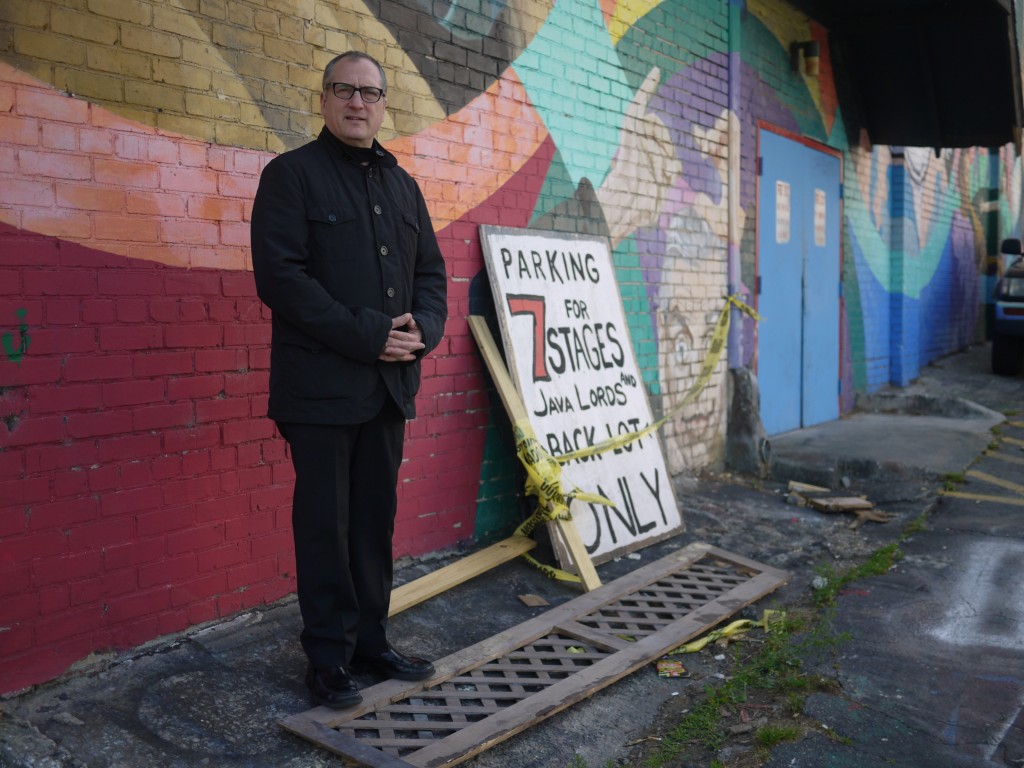
JazzMonthly: Tell me about how you came to join the group when Larry Carlton left. Had you worked with the others before? You’ve always had a very busy solo career, so how were you able to open enough time into your schedule to become a recording and touring member?
CL: I swear, it had nothing to do with me visiting Larry and threatening him (laughs). A few years before I joined, they thought Larry was going to have a conflict making one of their gigs and they called me to sub. I had been such a big fan of Larry and also Lee’s work in Fourplay so I was very flattered. Larry ultimately did that gig, but since Bob and I were longtime friends and had worked on a lot of projects together, I was the first guy they called when Larry decided to move on. When they called to schedule a conference call a few years ago to discuss me joining the band, it didn’t take me long to say yes. The timing was perfect because I was starting to record on my own indie label Tweety Records and wanted to pursue more traditional jazz in my solo work. Joining Fourplay allowed me to do that while still having an outlet to write and play contemporary jazz with one of the genre’s premier groups. It’s like having the best of both worlds, having the opportunity to do my own projects and also collaborate with three of the best musicians on the planet. I didn’t know Nathan and Harvey the way I knew Bob, but I had so much respect for them as artists and musicians. Everything clicked very quickly.
JazzMonthly: How do you feel you have lived up to the band’s expectations and those of the fans? What were some of your early challenges once you joined?
CL: There was no pressure from the other guys, but I put a lot on myself. I had so much respect for my predecessors and so I wanted to make sure I could measure up. It’s hard to generalize the fan response but I felt good reading emails and Facebook posts about me being the perfect choice. When I’d see the occasional disapproving note I would put it out of my mind. I can only do my best and bring what I have to the table. The guys made it clear that they didn’t want me to imitate Larry or Lee, but come in fresh with my own contributions. Despite that, I remember when I would be playing one of their classic tunes, I was thinking about how Lee or Larry might approach it. In recent years, Larry had that swing, groove and time, incredible expression and touch. It was my wife Carmen (Cuesta) who finally said, just be yourself, relax and have fun. Now I’m completely at ease. If anyone misses Larry and Lee, well, all I can say is, I miss them too. But I’m here making my own contribution.
JazzMonthly: What have been some of the highlights recording and playing live with Fourplay? What do you think you bring that is unique?
CL: One of greatest things about being a composer is thinking about who will play it. When I bring a tune to Bob, Nathan and Harvey, it’s not only awe inspiring, it keeps me on my toes as a writer. The greatest thing is to take material into the studio and see what they will do with it. The opening track on the album is “December Dream,” which we built into a long suite. Each guy kind of attacked my original tune and brought unique elements to it. In the middle Bob and I are doing a fugue section, a contrapuntal part which Bob came up with spontaneously in the session. Harvey delved into his classical percussion background and came up with a syncopated orchestral part, so that it almost sounds like a Stravinsky piece with doubled and tripled snare drum. Nathan sang a lot but also included a killer walking bassline. I could never imagine these elements until they came up with them. As for what I bring that is unique, I think maybe more of an emphasis on challenging, more “notey” jazz fusion and compositions that lean more jazz than pop. My background includes working with Stan Getz and Michael Brecker and others who have challenged me on the traditional and fusion jazz front. In turn, the Fourplay guys like the challenges I bring into the mix with my compositions.
JazzMonthly (to Harvey Mason): As a founding member of Fourplay, what’s your take on the title Esprit De Corps?
Harvey Mason: As you can tell from the title and artwork, we’re bonded together and there’s the “all for one, one for all” unity of 21 years together. They’re all great guys and we’re probably tighter now than ever. Chuck definitely fits right into our flow. Each time we record is a unique experience. We “audition” songs for each other and that’s the nervous time. But Chuck as our newest member gets to present his material first and he was so excited to do it. Like he said, “December Dream” took us back to the drawing board and set a high bar which took our creative sensibilities to a whole different place. We were all scrambling back into the musical archives in our memory to come up with ideas that could do justice to what he brought in. The process of building songs is a discovery and love affair at the same time, and it’s an amazing process that is always fresh and exciting. Because all of us have been both leaders and played supporting roles for other artists, we know when to lead and when to be step back. All those tools work together here in an unselfish and giving environment. That’s always been our aesthetic, giving everything we have to each other.
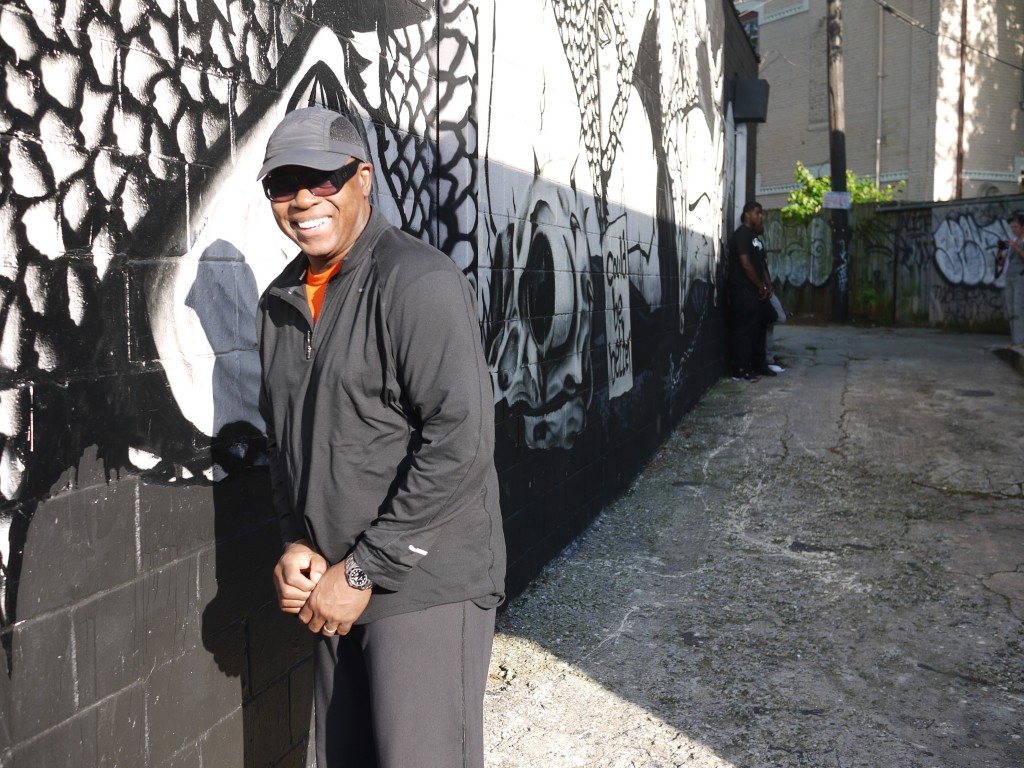
JazzMonthly: Once Larry left, how did you guys decide Chuck was the guy, and what do you think Chuck has brought to the group creatively?
HM: Chuck was the only choice. Bob had worked with him in the past and Nathan and I had heard his records and seen him play. Every time I would hear a great guitar tune on the radio, it turned out to be Chuck. I love the way he plays, and he’s very well rounded as a composer, producer and creator of a great sound. He’s also an equally wonderful human being and the perfect fit for a band like ours that is not content to rest on its laurels and wants to continue to explore. His flexibility is amazing and he’s brought an exciting energy to our new tunes and to many of our older songs when we play live. His fresh approach has driven us all to perk up, and it has pushed us to meld together again around his playing. That’s what we do best.
JazzMonthly: How do you think changing guitarists three times has influenced the band’s sound over the years?
HM: I believe it’s had a great impact. With Lee, we played a little sweeter. With Larry, it was bluesy, raw and not as slick and refined, but in a daring way. With Chuck, we get a sound that’s refined and sophisticated and very diverse. He covers every area so well and brings more of that jazz fusion influence from his days with Getz and Steps Ahead. Now that he’s opened us up to that arena, we’re flying all over the place!
JazzMonthly: I know that Fourplay launched out of the sessions you, Bob, Nathan and Lee did for Bob’s 1990 album Grand Piano Canyon. When you decided to join forces as a group, what was your collective goal at the time? Has that evolved?
HM: From the beginning, we wanted to be like the Modern Jazz Quartet, which spun off from Dizzy Gillespie’s Big Band and then became a working ensemble for the next 40 years. We didn’t want to make it a one-off all-star project. The idea was to be around for a long time, and so far we’ve pulled it off. It all started pretty simply. The Grand Piano Canyon project was flowing so well that Bob just asked us, hey, would you guys like to be in a band, and we all said, sure. No one balked for a minute. Bob told Warner Bros. President Mo Ostin what we wanted to do and he supported us fully. We signed a deal, got in the studio to record our first album and it went platinum. We got off to a great start.
JazzMonthly: What makes the chemistry work? How do you stay excited, focused and creative, and after over 20 years, what keeps you guys motivated and coming up with new musical adventures and ideas?
HM: First of all, it’s about respect. Everyone in this band is a gentleman. Everyone respects the others’ feelings. We may not agree on everything, but we do things democratically and you win some, you lose some. We discuss our differences and get through them. To tell the truth, it’s like a marriage. Like I mentioned at the beginning of this interview, there’s a feeling of teamwork and camaraderie.
I love these guys. We go our separate ways between albums and tours but can’t wait to get back together for the next go-round. It’s easy when you have the same goal, and we travel well. Above all, it’s fun…we stay in nice hotels with a nice crew, go out to dinners together, have a good time and enjoy each other’s company. We share new ideas, gadgets, apps, drink fine wine, write songs and make videos. Being on the road was something of a new experience when Fourplay first started. I was a studio guy and loved the stability of that.
I had done one world tour with Carole King and various dates with Bob, but otherwise I was pretty grounded and happy in my career. It was a little scary at first giving up a lot of that work, but even after 20 years on the road, it’s fresh and exciting and doesn’t beat me up. I get to meet fans of mine who say they have been listening to my recordings for years but didn’t think they’d ever get to see me play live. So that’s fulfilling. I think for my career, Fourplay came along at just the right time. These guys know how to make records.
JazzMonthly: Are there any recent experiences with Fourplay that stand out for you?
HM: Yes, last December, we played for the first time with a Japanese symphony orchestra in Tokyo. We did a 14 camera video shoot of the show in HD, and the video just came out. I had played on many soundtracks so I adapted well to having all the brass, strings and woodwinds behind me. It was great to hear these songs we had been playing so long orchestrated like this. I’m sure there are many more exciting experiences we’ll have in the future. No matter how busy we are in our solo careers, Fourplay is everyone’s priority and we can’t wait to see what’s next. That Esprit De Four makes it all happen.



